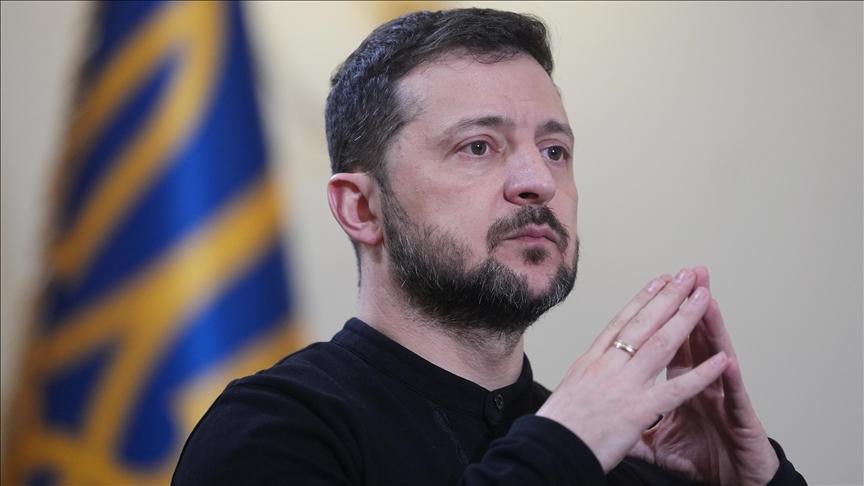Foreign investors in Turkey face squeeze
LONDON/VIENNA - Reuters

Foreign investors have started to see Turkey in a different position when rising political tension and emerging market risks added to chronic problems. DAILY NEWS Photo
Foreign companies in Turkey are beginning to feel the effects of a sagging currency, rising inflation and a growing political power struggle, adding to fears the country may not be the source of future growth that some companies had hoped.As Western companies unveiled their 2013 results in recent weeks, most of those with operations in Turkey said they were committed to continuing to invest in the country. However, many acknowledged bumps in their performance there.
Like other developing economies, Turkey has been battered in recent months by U.S. Federal Reserve plans to reduce its monetary stimulus. This had allowed financial investors to borrow cheaply in the United States and invest in high yielding securities in faster growing, lesser developed economies.
But Turkey has been hit particularly badly by a power struggle between Prime Minister Tayyip Erdogan and an Islamic cleric he accuses of concocting a corruption scandal in an attempt to undermine him.
The corruption scandal along with rising inflation and sustained falls in the lira have prompted rating agencies to cut their outlook for Turkey and warn there could be a hard economic landing.
Companies are watching the fallout closely.
U.S. carmaker Ford and German auto parts maker ElringKlinger, which have plants in the country, said the drop in the lira was eating into earnings. Foreign owned factories rely heavily on foreign-made components and the weak lira is pushing up the price of these.
British mobile phone group Vodafone said revenue growth at its Turkish unit dropped almost 80 percent in the last quarter of 2013, compared to the same period of 2012, due to a mix of tougher regulation and price pressure.
Austrian oil group OMV, which is among the most reliant on Turkey for earnings of all the foreign investors there said the economic volatility was challenging the very profitability of its Petrol Ofisi filling station and lubricants unit.
Joe Kaeser, Chief Executive of German engineering group, Siemens, told investors in late January that his perception of Turkey had shifted from being a market that was "peachy" for businesses that sell infrastructure, energy and healthcare equipment, to one where he now grouped the country among riskier plays like Ukraine.
"If you had asked me a year ago or two years ago about Turkey, I would have told you this is the place to be," he said on an investor call.
"In the meantime we do see that those geopolitical impacts have been spreading uncertainty also into the economic development," he added.
Buoyant messages
Turkey has enjoyed strong economic growth since Erdogan came to power in 2002.
This and trade agreements with the European Union helped make the country a magnet for European manufacturers which wanted to access cheap labour, or consumer goods groups which wanted to participate in an increasingly valuable market.
While the current instability is prompting some companies to tighten risk management - BASF said it was reducing working capital so that less cash was tied up in Turkey - none of the more than a dozen companies contacted by Reuters said they had plans to scale back investment.
"We monitor the situation daily but in the medium term we remain positive and ready to invest," UniCredit's CEO Federico Ghizzoni said earlier this month. He added the bank planned to hire 2,000 people and open 60 branches in Turkey this year.
Kasper Rorsted, CEO of detergent maker Henkel, which is building a factory in Turkey, said while the weaker lira did force his company to cut prices, such fluctuations were common in emerging markets and that his eye remained on the long term.
"The high inflation you right now have in Turkey with a big devaluation of the Turkish lira you have to deal with it," said in a television interview with Reuters Insider.
European companies' commitment to Turkey is partly thanks stagnant markets at home, analysts say.
But the view that Turkey is experiencing a temporary blip and that growth and demand will recover to the vigorous levels seen in the 2000s is too optimistic, said Fadi Hakura, Head of Turkey Project at think tank Chatham House.
"Turkey has entered the middle income trap. Without fundamental reform, such as upgrading its institutions for governance and its human capital (through better education), Turkey will likely see growth of only 2 to 4 percent over the long term," he said, adding the country enjoyed around 5.2 percent growth since 2002.
Hakura said such fundamental reform currently looked unlikely and consequently, the authorities were likely to continue to rely on existing measures such as as higher interest rates and lending restrictions to tackle the country's balance of payments problems.
Such measures are bad news for companies seeking to tap the Turkish consumer.
"Consumer based businesses will not likely enjoy the same revenues and profits in the future that they have experienced over the last decade," Hakura said.
















